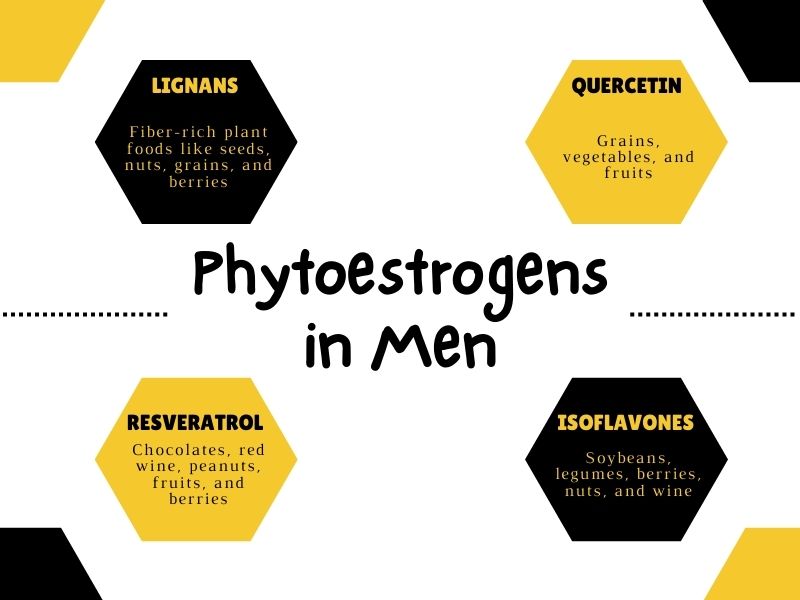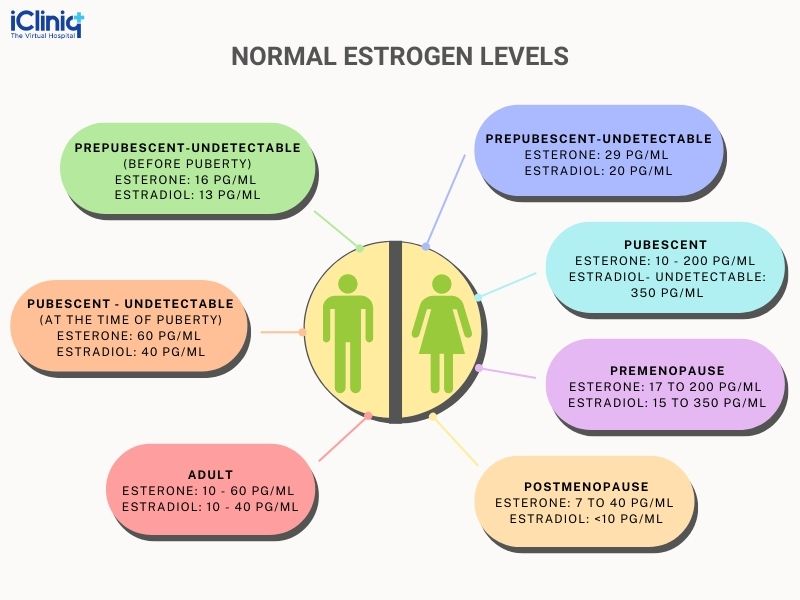What Are Estrogens?
The human body consists of several glands that secrete various hormones to stimulate the body's metabolic reactions. One such hormone is estrogen, also known as the sex hormone or female hormone. Estrogens are a set of hormones that play a vital role in the sexual and reproductive functions of the body. They are present in both males and females but in a higher amount in females. In addition to maintaining the body's reproductive cycle, estrogen affects the urinary tract, heart, breasts, bones, pelvic muscles, mucous membranes, skin, and hair. Estrogen is also responsible for secondary sexual characteristics like armpit and pubic hair. Males contain estrogen and testosterone, but estrogen is present in very small amounts.
What Are Phytoestrogens?
Phytoestrogens are substances derived from diet and are present naturally in some plant-based food products. Therefore, when a person consumes food products that contain phytoestrogen, the body recognizes them as natural estrogen, which has a beneficial effect. The word can be divided into two halves to understand the meaning of phytoestrogen. First, 'Phyto' is a Greek word meaning plants, whereas estrogen is a hormone, so phytoestrogen usually indicates a plant-based hormone. In other words, phytoestrogens serve as natural estrogen supplements when the estrogen levels are low. The most commonly studied phytoestrogens in men are listed in the table below:

What Are the Different Types of Estrogen?
Estrogen has various effects on the body of males and females. The different types of estrogen are listed below:
-
Estrone - It is the weakest type of estrogen present in the body of post-menopausal females. The body can convert estrone into different types of estrogen as per the requirement.
-
Estradiol -Both males and females produce estradiol, but females secrete a higher amount. Excessive estradiol causes acne, osteoporosis, and low sex drive and increases the risk of breast and uterine cancer.
-
Estriol - The levels of estriol elevate during pregnancy, and it helps in uterine growth. It also prepares the uterus for delivery, and the estriol levels peak during childbirth.
Are Estrogens Harmful to Men?
It is a misconception that only females secrete estrogen, and males do not require estrogen because they have another hormone known as testosterone to regulate their body activities. Estrogens are not harmful to men because the following health benefits are associated with them:
-
Estrogens help to regulate the sex drive in males.
-
They help achieve penile erections when a person is sexually stimulated.
-
Regulate the production of sperm.
-
Help lower the cholesterol levels of the body.
-
Maintains heart and bone health.
-
Regulate the functions of testicles.
-
Affects the mood of a person.
What Are the Health Benefits of Phytoestrogens in Males?
Phytoestrogens are used as natural agents to replace the estrogens in the body. Phytoestrogen supplements are associated with the following health benefits:
-
Phytoestrogens, especially resveratrol and quercetin, help reduce blood pressure.
-
Resveratrol and flax seeds help lower blood glucose levels and are beneficial for diabetics.
-
Isoflavone supplements lower the risk of prostate cancer in males.
-
Phytoestrogens help to lower cholesterol levels and prevent heart diseases.
-
Soy isoflavones work as anti-inflammatory agents by reducing the C-reactive protein levels.
What Are the Normal Estrogen Levels in Males and Females?
Several factors are responsible for variations in estrogen levels in males and females. The normal estrogen levels in males have listed in the table below:
The normal estrogen levels in females have listed below:

What Are the Causes of High Estrogens in Men?
The body might produce a large amount of estrogen alone to lower testosterone levels. The causes of high estrogen levels in men have listed below:
-
Medication used to treat mental health conditions, mainly Phenothiazines.
-
Natural substances or herbs like ginkgo or ginseng.
-
Obesity (excess weight).
-
Tumors.
-
Liver diseases.
-
Conditions affecting the hormonal balance, like hypogonadism.
What Are the Symptoms of High Estrogen in Males?
Certain medical conditions disturb the hormone balance and raise estrogen levels. The symptoms of high estrogen in males have listed below:
-
High estrogen levels slow down sperm production and increase the risk of infertility.
-
Elevated estrogen levels might stimulate the development of breasts in males, resulting in gynecomastia.
-
High estrogen levels disturb the hormone balance, and the person might experience erectile dysfunction.
-
Delayed sexual growth and development are commonly associated with elevated estrogen levels.
-
Low sex drive.
-
Reduced muscle mass and bone density increase the risk of osteoporosis.
-
Delayed growth of penis and testes.
-
Feeling tired throughout the day.
-
Inability to concentrate on daily activities.
Do Estrogens and Phytoestrogens Impair Male Fertility?
The effects of estrogens and phytoestrogens on male fertility are under research, and scientists are concerned about the same. The effects of estrogen and phytoestrogen on male fertility are discussed in the following points:
-
Estrogen is a natural hormone produced by the body, whereas phytoestrogens are derived from dietary sources.
-
Soybeans contain isoflavones, which are the richest sources of phytoestrogens. Both males and females consume soybeans and do not experience any fertility-related issues.
-
The body identifies phytoestrogens present in soybeans as natural estrogen and allows them to bind to the estrogen receptors. Phytoestrogens have been investigated over the past 30 years, and there is a rising apprehension that they reduce sperm count.
-
Several animal studies were conducted to investigate the effects of estrogens and phytoestrogens. However, no strong evidence exists that describes the association between male fertility and estrogen levels.
-
There were 15 studies done to analyze the effects of soy isoflavones on male fertility. All the studies concluded that they do not affect testosterone levels.
-
Some studies suggested that a high dose of soy isoflavones reduces sperm count.
-
In simple words, not much information is available regarding the effects of estrogen and phytoestrogen on male fertility, and more research is needed.
What Methods Help to Control Estrogen Levels in Males?
The doctor might recommend the following methods to help control estrogen levels:
-
Medications, mainly aromatase inhibitors, consist of an aromatase enzyme, which does not allow the conversion of androgens to estrogen and reduces their levels.
-
A low-fat and high-fiber diet helps control estrogen levels. Include cruciferous vegetables, mushrooms, green tea, red grapes, sesame seeds, and pomegranates in your diet to reduce estrogen levels.
-
The patient must undergo routine health check-ups to monitor estrogen levels.
-
Exercise regularly and stay fit, as obesity increases the risk of hormonal imbalance.
-
Avoid using shampoos that contain parabens as they raise estrogen levels.
Conclusion:
Males require some amounts of estrogens and phytoestrogens to maintain a hormonal balance. Phytoestrogens appear similar to estrogen, but their mechanism of action is different. The effect of estrogens and phytoestrogens on male fertility is still under research. Several plant-based foods contain phytoestrogens, and they have a lot of health benefits. The biggest myth about estrogen is that it is a female hormone and is present only in their bodies. Males contain estrogens but in small amounts. So, people experiencing symptoms due to high estrogen levels must consult the doctor immediately to know about their diet and lifestyle changes. They should not worry, as rising estrogen levels do not pose a major threat to the body.











